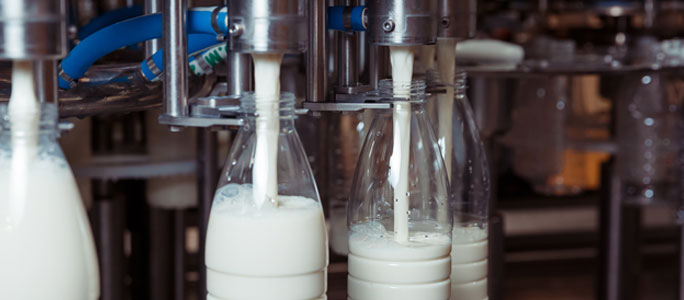
In process manufacturing industries, recipe control holds great significance, as it ensures that each batch of the end products that are prepared maintains same consistency and quality levels.
With many critical operations revolving around it, no wonder recipe control is often considered as the life-force of process manufacturing businesses.
Talking particularly about the food and beverage manufacturing industry, where there is a greater emphasis on accuracy and safety to ensure product consistency and consumer well-being, recipe control gains all the more importance.
Recipes are created after an intense process wherein the food and beverage manufacturing companies spend hundreds of hours, and other resources, to conduct research and develop them.
And yet many food manufacturing businesses still maintain their recipes in a manual log book, or a Microsoft Excel file.
ERP- the ‘recipe’ for ensuring food manufacturers’ success
Food and beverage manufacturing businesses require the right tools to ensure that recipe control is handled properly.
Manual methods are highly error-prone, and may often result in serious losses not just on monetary front, but the image and reputation front as well.
That’s why more food manufacturing companies place their trust on enterprise resource planning (ERP) solutions to integrate and automate key enterprise functions including recipe control.
Such systems come loaded with the recipe control functionalities, and allow the manufacturers to create, store, and scale recipes, and keep track of changes, among other things.
A recipe management software also offers the manufacturers the ability to maintain real-time recipes with a bill of materials (BOMs) that lists physical properties, versions, revisions, and production notes, besides helping ensure recipe security by limiting access to critical recipe information through user-based role permissions.
Lets’ understand in detail how an ERP software for food and beverage manufacturing industries can offer and help the businesses with the critical formula management and recipe control functionalities:
Recipe creation & management:
A good food ERP software allows the manufacturers to store and access different recipes and their versions.
Such software also come with easy-to-use functions for recipe version management and duplication.
Recipe security:
The formulas/recipes are usually developed after intense research and hard-work, and thus need to be protected.
An ERP software keeps the recipes safe by offering access controls, so that the recipe access and modification rights are limited to only those who should have it.
Formula analysis with cost:
Through its analysis with cost, and ‘what-if’ cost analysis features, an ERP software allows the manufacturers perform granular-level accurate costing of product while considering all the elements and different costing methods, and also estimate profitable scenarios based on different assumptions.
Version control:
Another important recipe control functionality for food manufacturers is version control.
It offers them the ability to track what changes have been made to the recipes, and by whom, providing a historical view of modifications.
This is particularly helpful for the manufacturers during regulatory audits.
Formula comparison:
An ERP software allows food manufacturers to compare multiple recipes in terms of their ingredients, labor and other characteristics.
This feature assists the manufacturers with decision making with respect to the existing formulas/recipes.
Material substitution by weight & volume:
A Food ERP also comes with feature to substitute a material across any chosen range of formulas/recipes based on specific percentage of the new material required to the old.
It also helps determine the alternatives available within your inventory to substitute the material that is out of stock.
Formula sizing:
A food ERP software’s formulation module allows food manufacturers to size their formulas, both by weight and volume.
This way, the manufacturers can meet their customers’ diverse requirements easily, avoiding long lead times.
Roll-back:
For any food manufacturer, the ability to roll-back to the desired formula as and when required is a must-have.
ERP software’s formulation management and recipe control functionalities offer formula roll-back capability, allowing the manufacturers to go back to the previous formula anytime, and manage their vast database seamlessly.
Measurement conversion:
A good ERP software for food manufacturing offers the manufacturers with support to multiple units of measure conversions, besides making them available at each level, including purchasing, manufacturing, storage, inventory, sales, and shipping.
Yield management:
The recipe control functionality offered by an ERP system allows food manufacturers to predict yields, scale production, scale yields up and down at the formula (ingredient level) or production (finished good) level, and also offers support to comparison of actual yields to standard yields.
Archiving:
The formulation management and recipe control functionality also allows the food manufacturers the capability to archive the recipes for a very long time, which is particularly useful for recalls and allergen alerts.

Additionally, there are some other key features a robust formulation management and recipe control functionality of a Food ERP software offers. Take a look below:
- Full support to costing of products, co-products and byproducts
- Allows tracking of ingredients
- Allows duplicating and updating of formulas and recipes
- Supports allergen management and alerts
- Supports shelf-life management
- Allows work order integration of formulas
- Allows recipe review
- Offers support to ingredient proportioning&ingredient traceability
- Allows yield tracking comparison
Conclusion
At BatchMaster, we help food and beverage manufacturers identify their business needs and recommend solutions that incorporate different core functionalities, including the comprehensive formula/recipe management functionality.
We offer tailor-made ERP solutions to different micro-verticals within the food & beverage manufacturing industry, such as dairy, meat & poultry, fresh produce, beer, edible oil, packaged food, seafood, bakery etc., thus helping them address their unique, specific, and exact business requirements.
Go through our range of food ERP software solutions to learn more about how we can help with your ERP solution development.
For more information on how our different offerings can help your business, write to us at sales@batchmaster.com for consultation or to schedule a free demo.



















